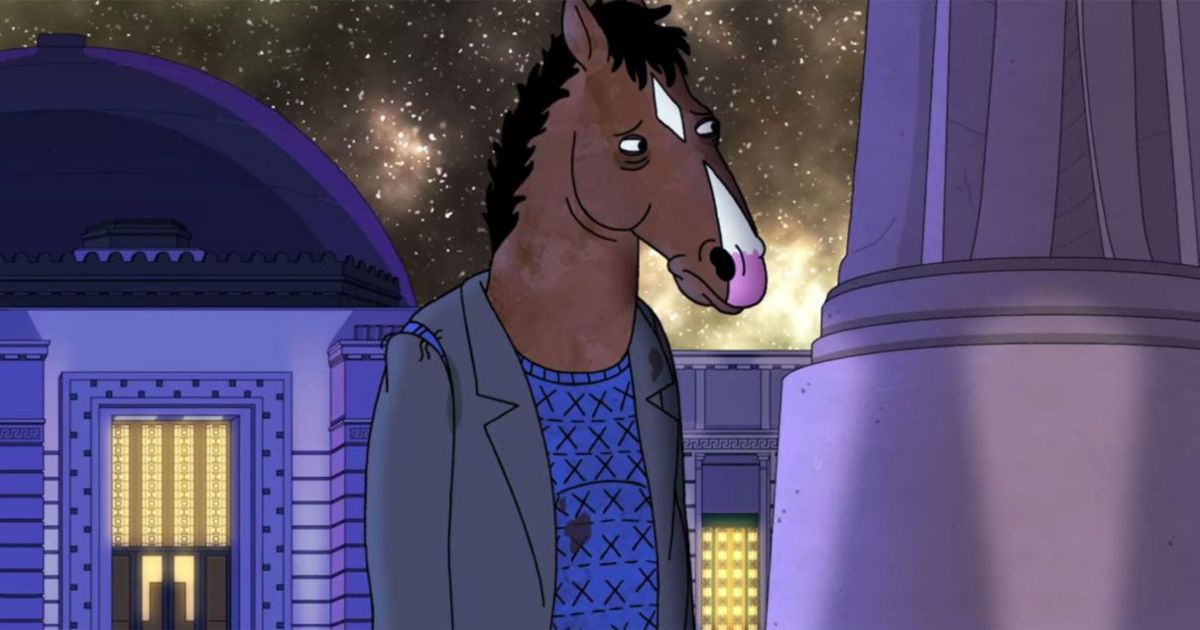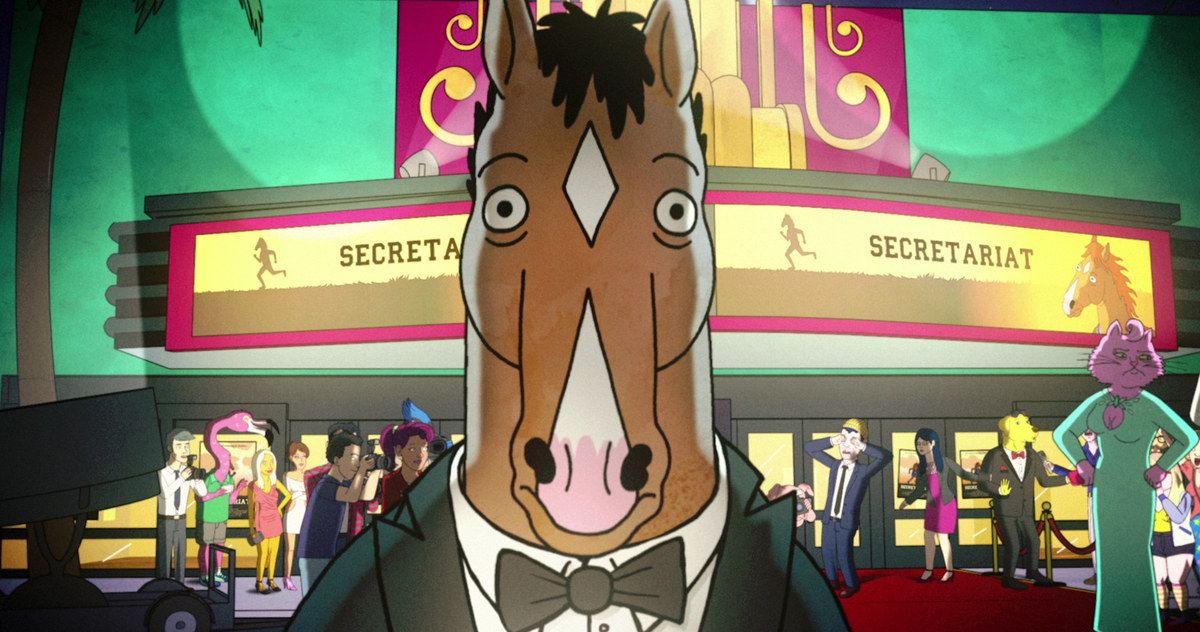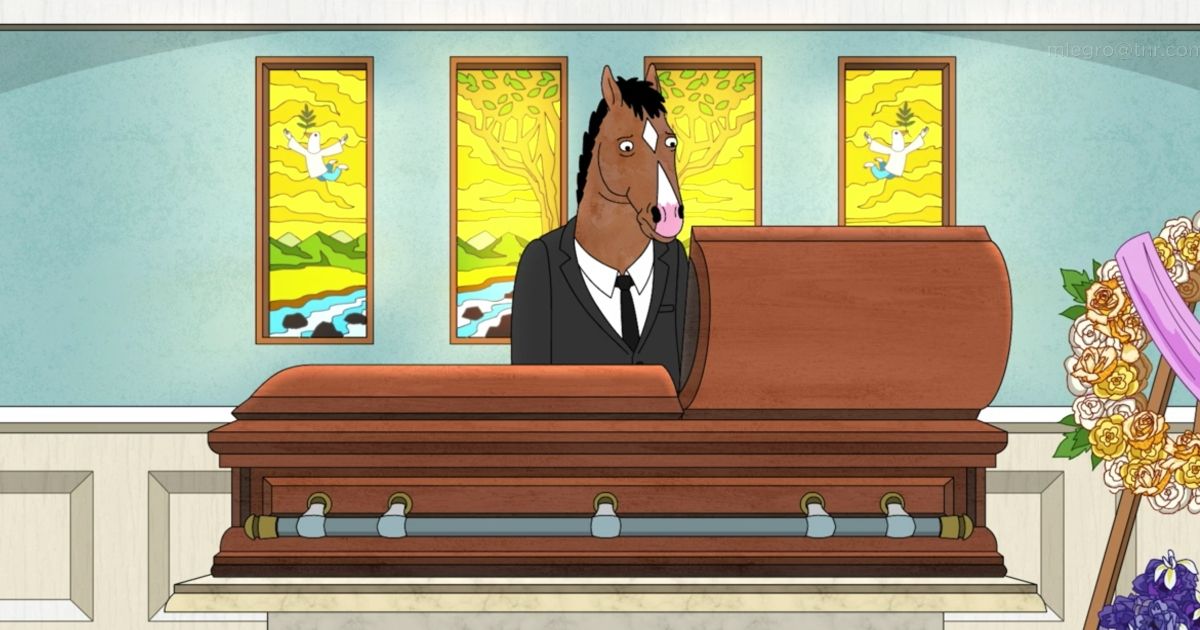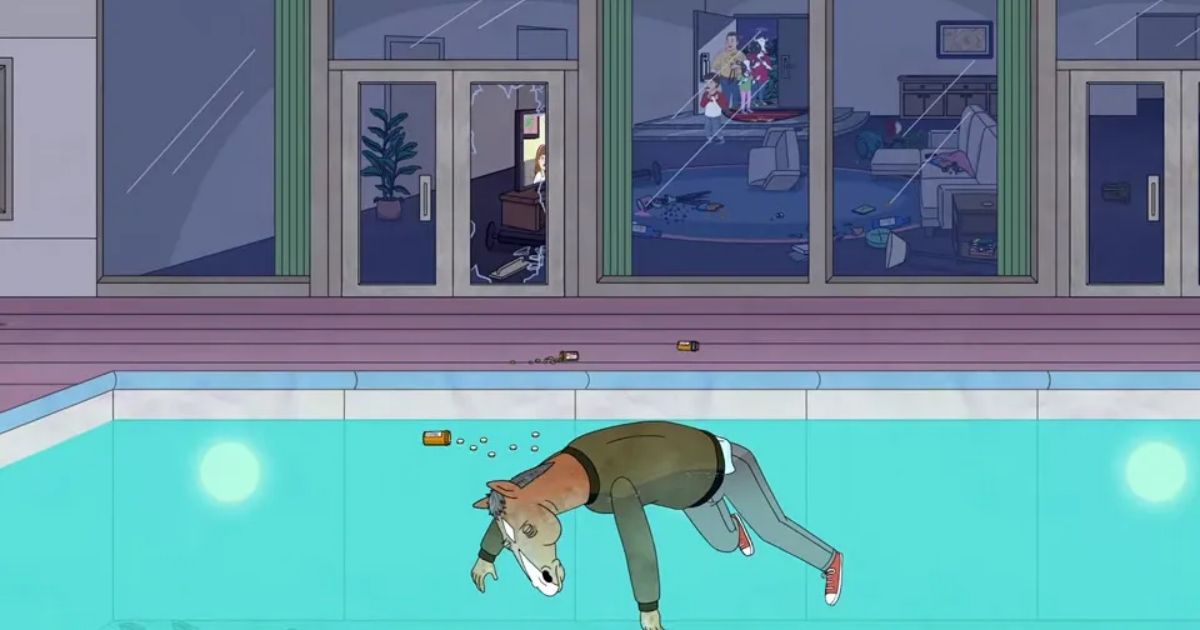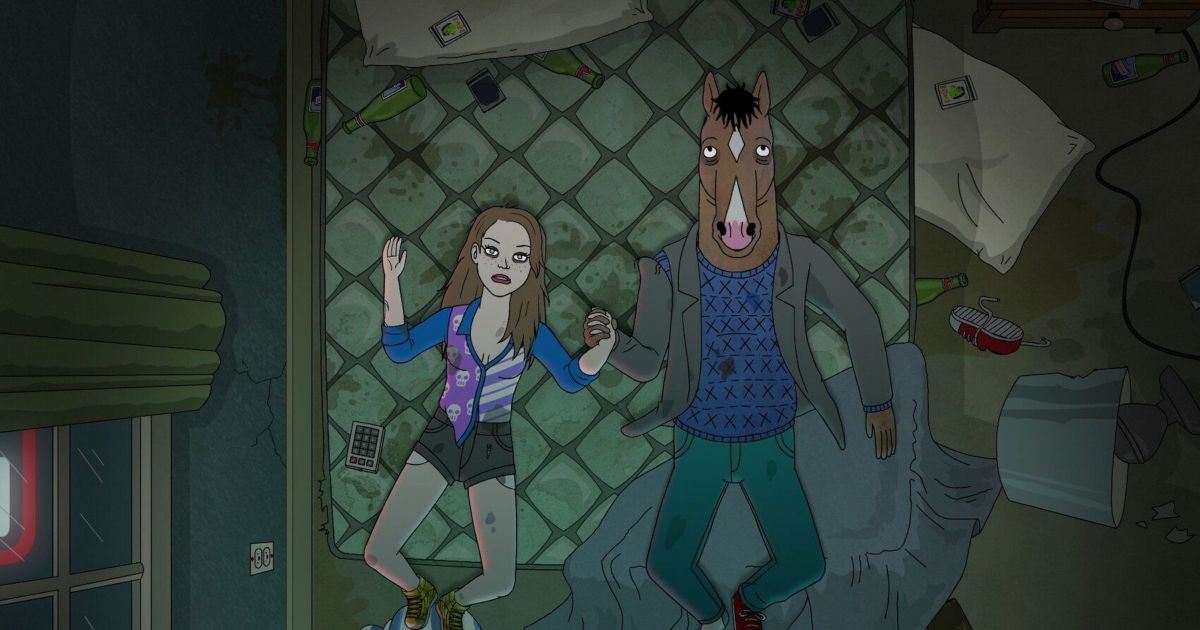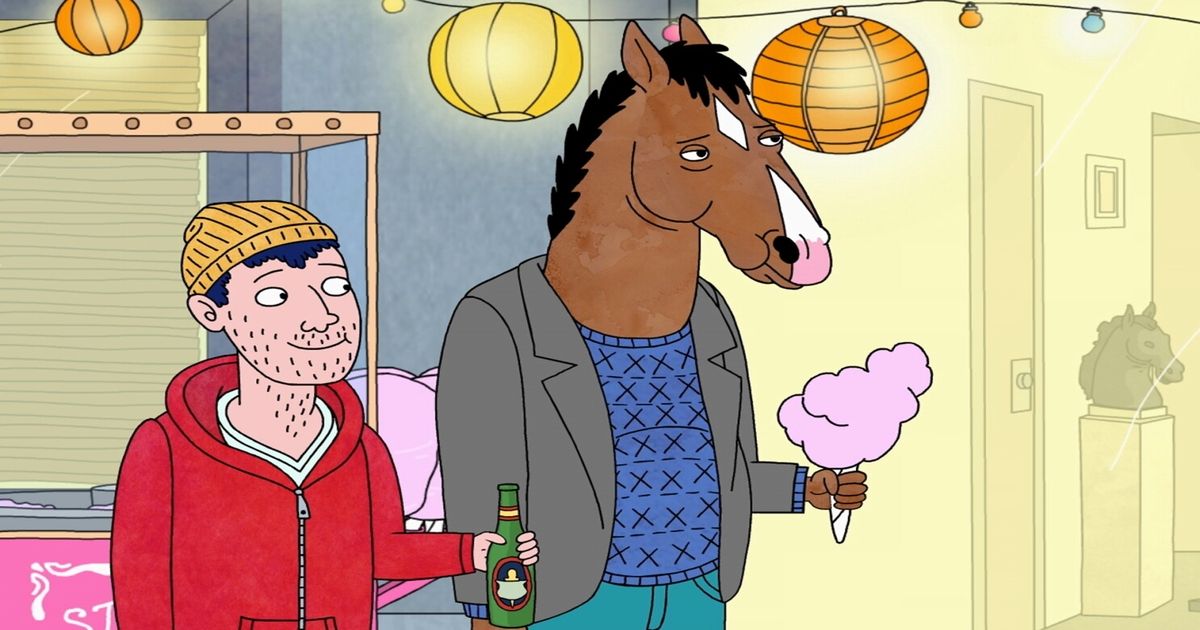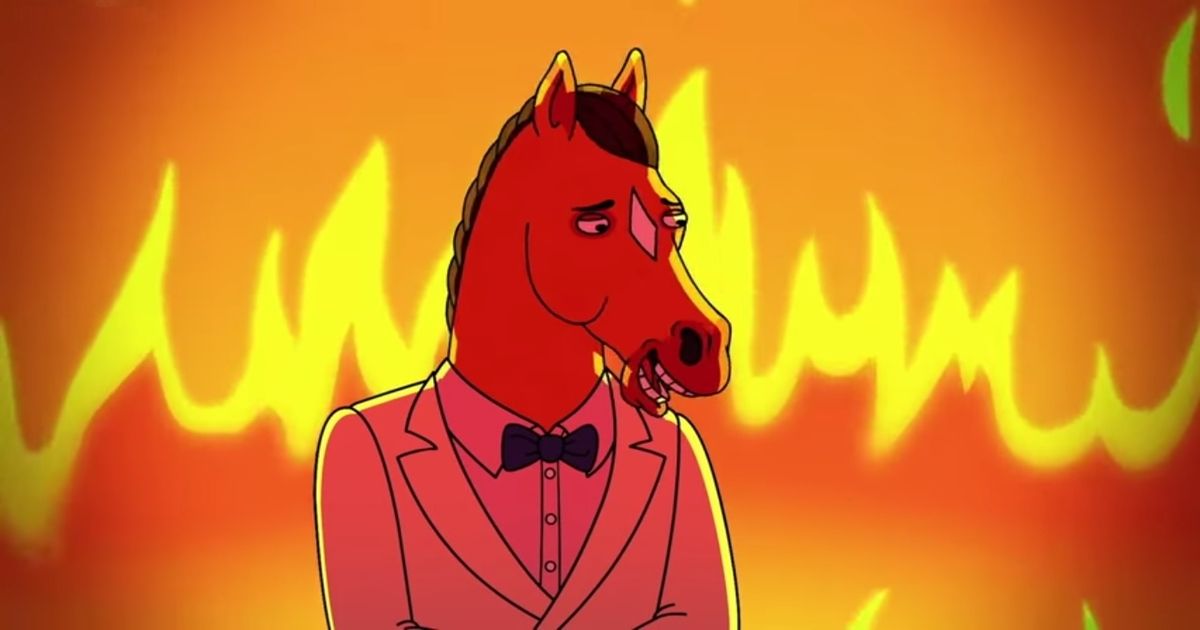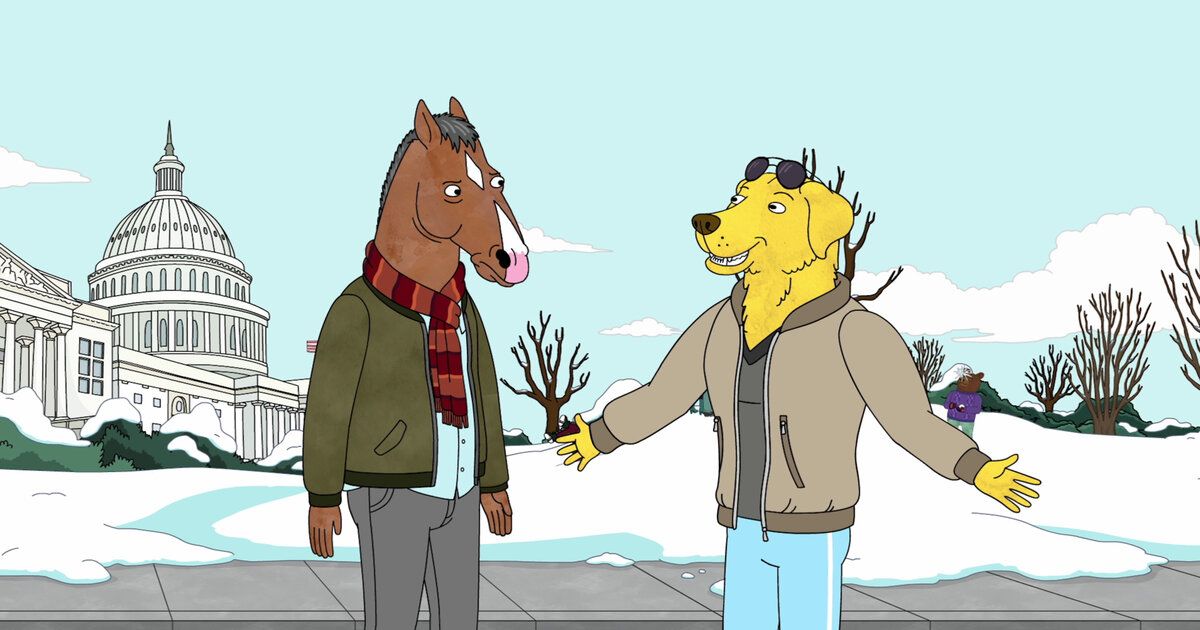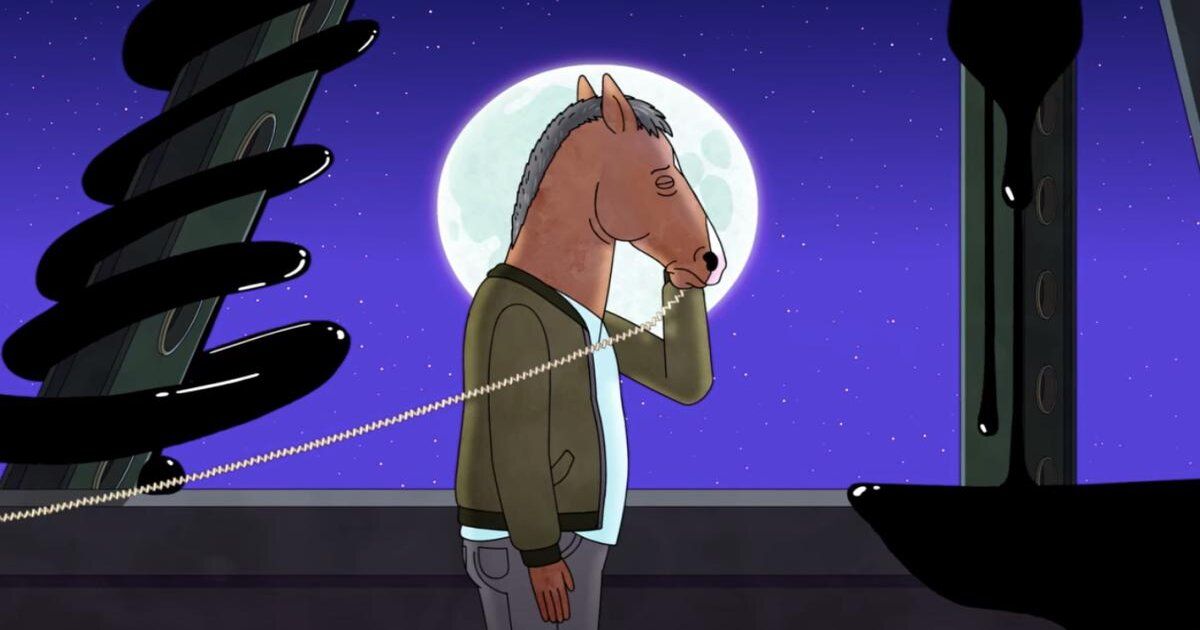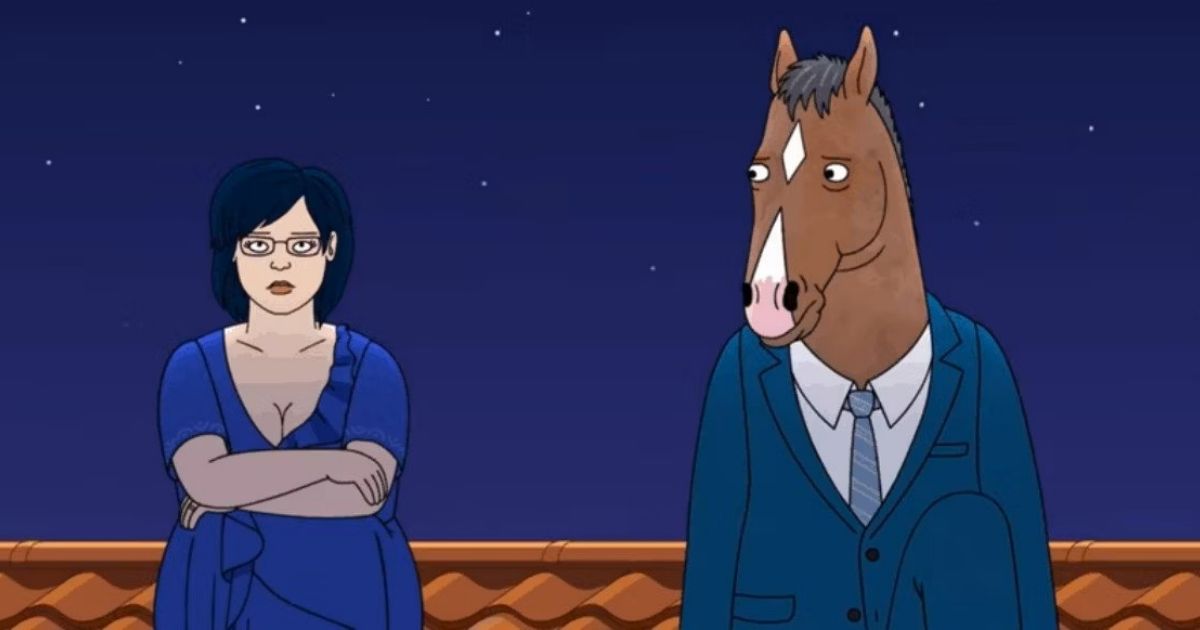This article contains spoilers for Bojack Horseman.Netflix’s original hit series BoJack Horseman ran from 2014 through 2020. The show follows the misadventures of a washed-up actor struggling to find his purpose in an industry that is far from where he thrived. With some comedic elements and an A-list voice cast, the series is also known for its darker themes that pushed the boundaries of animated television. From drugs, existentialism, mental health struggles, and death, BoJack Horseman did not shy away from the reality of not only stardom but just being human. However, humanity was reflected in non-human characters, thus creating this disconnect from reality.
The brilliant writing team layered the series with storylines and characters that are just plain depressing, and made the show a massive success. The unexpectedness of these shocking sequences put BoJack Horseman at the top of Netflix’s catalog of original series. Sadly never winning an Emmy, the series was nominated for three. Reflecting on the series as a whole, there are episodes, themes, and characters that are in fact brutally real and depressing, tapping into a place most shows (animated or not) would never dare go. Here are just a few of those elements.
Introducing BoJack Horseman
While there are specific elements and episodes that will be explored here, it's important to give an overview of BoJack Horseman as a whole and the powerful, melancholic impact it has. BoJack is the realistic flip-side to the happy-go-lucky artifice of the '90s, when every happy family learned a meaningful lesson each episode. BoJack played that part for a long time, but was also submerged in the debauchery and hedonism of its success. With the glory days of his sitcom years over, the hedonism is just sadly pathetic.
In many ways, BoJack Horseman is like the biblical book of Ecclesiastes, in which the author laments that "everything is meaningless" and "all is vanity." The author tries to find meaning and fulfillment through political power, consumption and materialism, philosophical and intellectual wisdom, the dignity of hard work, and so on, but with each attempt, he reaches the same conclusion — nothing actually matters.
BoJack Horseman sets its protagonist up in the same way, mixing Ecclesiastes with the Sisyphean myth of pushing a boulder up a hill for all eternity, only for it to roll back down every time once it nearly reaches the top (something personified by the jogger in this series). It hardly sounds like the recipe for a fun animated comedy about anthropomorphic animals in Hollywoo(d), but that's what makes BoJack Horseman so special, this probing into the darkness despite the silliness of its premise.
Bleak BoJack Horseman Quotes
Before continuing in more depth, just take a look at some of the quotes from BoJack Horseman, which say more than probably anything else about the sadness embedded within this show's DNA.
Sometimes I feel like I was born with a leak, and any goodness I started with just slowly spilled out of me, and now it's all gone.
We’re just two lonely people trying to hate ourselves a little less.
Either you know what you want and then you don't get what you want, or you get what you want and then you don't know what you want.
You are all the things that are wrong with you.
The universe is a cruel, uncaring void, The key to being happy isn't a search for meaning. It's to just keep yourself busy with unimportant nonsense, and eventually, you'll be dead.
The Tragedy of Sarah Lynn
Sarah Lynn, voiced by the great Kristen Schaal, was the representation of young stardom. Her rise to fame started when she was just a little girl on the fictional series preceding the events of BoJack Horseman called Horsin’ Around. It is a near mirror of the hit '90s family sitcom Full House, with BoJack as the Danny Tanner of the clan. As Sarah Lynn grew into young adulthood, she fell into the trap we unfortunately see quite a few artists fall into. She falls victim to drugs, partying, and self-destruction. With her success and mind-melting behavior, she's emotionally stunted and surrounded by 'yes men' who encourage the worst; she says so much herself:
I’m at a place where I don’t need to grow as a person and can constantly surround myself with sycophants and enablers until I die tragically young.
In the season three episode “That’s Too Much, Man!,” we see the culmination of years worth of relapse. This is perhaps one of the most important for both Sarah and BoJack. We truly see her codependency on BoJack, who is not the greatest role model in their spiraling months-long bender. She latches onto him as he brings her through this dark tunnel, but she refuses to let go of him. She says one of the quintessential lines for her character,
“I don’t like anything about me.”
She is completely self-aware of her own self-destruction, but it has come to a point where she knows she is too far gone. This is one of the most tragic elements in the entire series because we are seeing her die emotionally before she inevitably dies physically. The impact this episode has made is substantial. Garnering a higher rating higher than most episodes prior, it showed viewers that this series is not pulling any punches. No one is safe from the reality of the world itself. It is a dark and cruel place filled with unpredictable twists and turns. Sarah Lynn’s death made its mark on audiences, and BoJack himself. This iconic moment is the defining one for his character, as he will continue to blame himself for her demise for the duration of the series’ run.
A Robbery of Innocence
This series as a whole has many thematic elements that reflect innocence. Sarah Lynn’s tragic death as the true representation of innocence is one of them, as we saw her as a very young child grow into adulthood. The show does push these themes onto many (if not all) of its characters. BoJack for one, has his entire life shown in this series. As a child, begging for approval from his disconnected mother and brazen father, his character was molded by being forced to move away from his own loved ones. Secretariat (a fictional character, and another horse) became the father figure BoJack never had. He forced himself to identify and take the lessons from a movie character because his own family was not what he needed them to be.
Mr. Peanut Butter is one of the more comedic and light-hearted characters in the series, but he is far from simple in terms of his internal struggles. From the very beginning of the series, he has struggled with finding his true purpose. From politics, to television, to every ambition in between, Mr. Peanut Butter’s soft and lovable exterior is a mere facade to hide his want to fit in somewhere. Ironically, he is a lovable dog, surely he can find acceptance somewhere. But after his breakup with Diane (voiced by Alison Brie), the main human character of the series, he struggles to find love and purpose within. The innocent nature of his character is robbed the moment we see what's truly inside his head, all by his own hubris.
Diane is one of the few characters we as human audiences can latch on to. She is a writer trying to find her voice and self in a vastly changing entertainment business. She is the character who is at the age of the show’s target demographic. These twenty to thirty-something year olds are at a point in their lives where the world is about to hit them like an anvil from a Road Runner cartoon. Diane’s struggle to find work, maintain a positive self-image, and some kind of social life is the life of the audience themselves, which is rather depressing. She, like many of these characters, show what it's like to age.
Time’s Arrow
This episode is one of the comedy series’ darkest. Focusing on generational trauma, we see the life of Beatrice, BoJack’s mother. Her beginnings were far from easy, from an abusive father to a lobotomized mother and deceased brother. It is all fully realized in a twenty-five-minute episode, which is a lot to handle. Ironically being told from her perspective, the episode has this uneasiness to it because it is told from the mind of a dementia-ridden character. The complexity and unreliability from this narrative point of view makes the entire episode seem like a dream; in fact, it kind of is. Faces are blurred, moments of trauma (like her childhood doll being burned in front of her), are exploited, but there is a single thread-line. At the episode’s heart, it is about a little girl trying to find love.
The episode is titled “Time’s Arrow,” because an arrow continues to move forward in one direction, just like time. It keeps going, and going, until there is a gentle descent… then it stops. We catch Beatrice at the moments of slow descent, which is really a tearjerker to see, as she is deteriorating just like her mind. This episode is highly depressing and answers a lot of questions about the generational trauma from the Horseman family.
Anthropomorphism in BoJack Horseman
BoJack Horseman mostly focuses on anthropomorphic characters with human characteristics. They walk on all twos and go about their days like we would in the real world. However, the show is able to hide highly depressing themes within these characters, who can be disconnected from the audience because they don’t look human (the way South Park is funny by using children to tackle controversial things). It’s easier to see a cartoon horse going on a drug-induced bender than to see a middle-aged man; if this was a live-action show with people, it would honestly be too difficult to watch.
The human characters we do see, such as Diane and Sarah Lynn, are the most real and encapsulate the most human themes on both sides of the aisle. Sarah is engulfed by the nihilistic darkness, while Diane tries to maintain presence in the light. However, the remainder of the characters maintain a variety of ups and downs, which is easier for the audience to experience, lacking 100% total human empathy because they find themselves watching a cartoon animal.
The View from Halfway Down
"The View From Halfway Down" was the 15th episode of season six, and is BoJack’s climactic meeting with death and the darkness he has tried so hard to run away from, via the suicidal ideation of Secretariat. It is a rather scary episode with unexpected moments, where BoJack is frequently chased by his past and this black tar. He is face-to-face with his past, present, and potential future. He sees all the ones he had wronged and must find acceptance in the fact that he is and will always be damaged.
All of this is happening internally, via the character's existential crisis while drowning in his pool after a drunken mishap. We truly believe this is the end to his character, and it is sad to possibly see him go like this. However, being saved at the end from none other than Mr. Peanut Butter is the representation of a breath of optimism being put into his black soul. Still, there's no forgetting the heartbreaking poem that the episode is titled after, read by Secretariat:
But this is it, the deed is done
silence drowns the sound.
Before I leaped I should've seen
the view from halfway down.
Mr. Blue and the Ending of BoJack Horseman
The final moments of the series cap the idea it has been setting up since the very first episode. The last few lines summarize the long awaited sigh of relief we all needed after a dark few episodes. However, it is not a climactic speech nor a realization of the self; it is a simple acceptance of the world around these characters. As BoJack and Diane sit on a rooftop in a starry night, they look up into the sky and say:
BoJack - “Life’s a b**ch and then you die, right?”
Diane - “Sometimes, sometimes life’s a b**ch, then you keep living.”
BoJack - “Yeah.”
Diane - “But it’s a nice night, huh?”
BoJack - “Yeah. This is nice.”
What can be taken from this? It is rather anticlimactic. Or perfectly climactic because of its realism. Life is what you make of it, and just taking one moment at a time can surely make life a little more livable. This is a mature and harsh look into the mirror for these characters who just look into the stars as the final moments of the show come to a close. Then it ends, just like that, and without another word. And we keep on living, until we don't.

